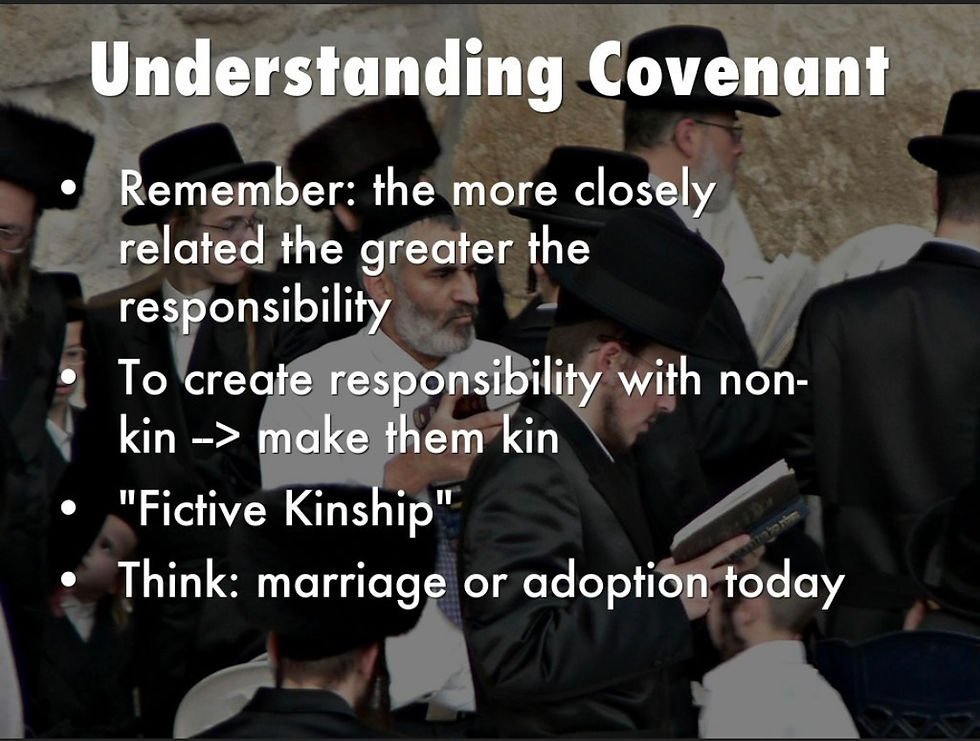
You cannot enter the Promise of Abraham fulfilled without baptism into the body of Christ.
- Luke Haskell
- Aug 18, 2023
- 5 min read
Luke Haskell
If you have not received a proper baptism then you are in original sin outside of sanctifying grace outside of the promise of Abraham fulfilled as the chosen people, the holy nation, the Royal Priesthood.
1Now I make known unto you, brethren, the gospel which I preached to you, which also you have received and wherein you stand. 2By which also you are saved, (((if you hold fast after what manner I preached unto you, unless you have believed in vain.)))
Paul preached the sacramental life in obedience to the faith. Being born again through baptism is the beginning of living the gospel. The way of the sacramental life in transforming grace is what we hold fast to.
So when we get into these debate rooms and we are told by Protestants that they are saved by the blood of Christ, I tend to ask them, ok, how was that blood of Christ applied? They would say it was applied when I found Christ and through faith. I then would respond, do you find a biblical principle for this?
If they are knowledgeable in Protestantism they would respond with a verse such as
Ephesians 1:7-8 tells us, “In [Jesus] we have redemption through his blood, the forgiveness of sins, in accordance with the riches of God's grace that he lavishes on us.”
So I would then ask do you see any reference to forgiveness of future sins here?
They would then imply that this means future sins like it is implied that “ it is finished “ somehow means eternal security is established, so I would show them another example of forgiveness of past sins.
In 2 Peter 1 we read:
8For if these things be with you and abound, they will make you to be neither empty nor unfruitful in the knowledge of our Lord Jesus Christ. 9For he that hath not these things with him is blind and groping, having forgotten that he was purged from his old sins. 10Wherefore, brethren, labour the more, that by good works you may make sure your calling and election.
2 Peter 1
So is this not the same Peter who said,
8But Peter said to them: Do penance: and be baptized every one of you in the name of Jesus Christ, for the remission of your sins. And you shall receive the gift of the Holy Ghost. 39For the promise is to you and to your children and to all that are far off.
Acts 2:38
Obviously Peter believed that baptism destroyed past sins.

So being purged of past sins is occurring through baptism here and in second Peter , Peter tells those who were purged of past sin that they must secure their “election” through good works. But that is another story.
Paul also goes further and shows us how the blood of Christ is involved in this purge of past sin.
Being justified freely by his grace, through the redemption that is in Christ Jesus, 25Whom God hath proposed to be a propitiation, through faith in his blood, to the shewing of his justice, for the remission of former sins ( past)
You will find that every verse Protestants try and use against Catholics when placed in proper context in light of the New Covenant, simply express Catholic truth. It’s a Judeo Catholic Book.
Romans 3:24 You see the blood ,you see the grace, you see redemption specifically of former sins in this context not future ones. And of course you see faith for those of the age of reason. It was the faith of the parents that brought the children into the promise just like it is the faith of the parents that brings the parents into the promise fulfilled. Protestantism has a much more individualistic image of salvation while Jews and Catholics understand salvation through being inside a covenant family.
The word covenant goes back to the ancient Semitic word “berit” which shows a covenant bond through a sharing of blood. The blood of Christ destroys our past sins at baptism but we see an amazing vision of this covenant in sharing of blood as Paul writes a rhetorical question to those in the church celebrating the Holy Mass. He says: The chalice of benediction, which we bless, is it not the communion of the blood of Christ ? And the bread, which we break, is it not the partaking of the body of the Lord ? 1 Cor 10:16 this is covenant. This is family.

People are not going to understand the epistles unless they begin to understand that they are written to those who were already baptized into the church which they understood as grace given freely, who were living the sacramental life in obedience to the faith which is the narrow road of transforming grace through which we are saved.
The epistles address churches the apostles already established with Bishops, priests and deacons and they are not a catechism of faith. They only address what was pressing on the mind of the author at the time to people who were already living the faith and apostolic tradition was simply the faith lived. Of course some of them address bishops of those churches such as Titus being the bishop of Crete and Timothy being the bishop of Ephesus, Mark ended up being the first bishop of Alexandria. They all ordained priests of the church.

So how did the early church understand that the blood of Christ is applied at baptism? Of course first through the infusion of knowledge into the church at Pentecost when the apostles began to put things together after they thought the cross was a failure.
In many ways actually. John tells us:
5Who is he that overcometh the world, but he that believeth that Jesus is the Son of God? 6This is he that came by water and blood, Jesus Christ: not by water only, but by water and blood. And it is the Spirit which testifieth, that Christ is the truth. 7And there are three who give testimony in heaven, the Father, the Word, and the Holy Ghost. And these three are one. 8And there are three that give testimony on earth: the spirit, and the water, and the blood: and these three are one.
1 John 5
John who was infused with understanding through the Holy Spirit does not separate the water, blood and spirit as testimony and neither should we. Jesus told the apostles:
But when he, the Spirit of truth, is come, he will teach you all truth. For he shall not speak of himself; but what things soever he shall hear, he shall speak; and the things that are to come, he shall shew you.
Jn 16:13
This also applies to the church through all time.
In the great commission is the making of disciples through a Trinitarian baptism.
Go therefore and make disciples of all nations, baptizing them in the name of the Father and of the Son and of the Holy Spirit.
The spirit and the water and the blood is one and if someone says that the Holy Spirit is not present at baptism then they are denying Gods words. Baptism is an invocation of the Trinity which includes the Holy Spirit and baptism in the Trinity is an exorcism.
We see the spirit and the water and the blood here and remember we see it here in the destruction of past sins:
Being justified freely by his grace, through the redemption that is in Christ Jesus, 25Whom God hath proposed to be a propitiation, through faith in his blood, to the shewing of his justice, for the remission of former sins ( past)
Romans 3:24
So Paul is expressing the same in his letter to the Ephesians even though we do not see the word baptism. He is writing to those who were already taught that the blood of Christ is applied at baptism. He did not separate the testimony of the water, blood and spirit which is one. He often does not use the word baptism writing to those in the church who were already baptized but in many different writings expresses the graces of that baptism.
Repent and be baptized for the remission of your sins.

Through his blood is the forgiveness of sins.




Comments